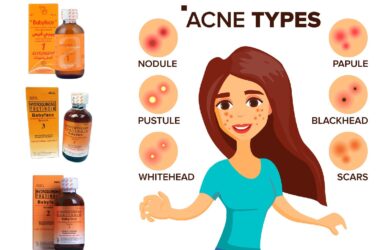Hyperpigmentation, characterized by patches of darker skin, is a common concern for many individuals. Over-the-counter (OTC) skin lightening creams offer a convenient and accessible solution for addressing this issue. Let’s delve into the world of OTC skin lightening creams and explore their effectiveness for hyperpigmented skin.
Table of Contents
Understanding Hyperpigmentation
Before diving into treatment options, it’s essential to understand hyperpigmentation. This condition occurs when excess melanin forms deposits in the skin, leading to dark spots or patches. Causes can vary from sun exposure and hormonal changes to inflammation and skin injuries.
Ingredients to Look For
Several key ingredients are commonly found in OTC skin lightening creams that target hyperpigmentation:
- Hydroquinone: A potent melanin inhibitor, hydroquinone is one of the most effective ingredients for lightening dark spots. However, it should be used cautiously and under the guidance of a dermatologist due to potential side effects.
- Kojic Acid: Derived from various fungi, kojic acid works by inhibiting melanin production. It’s often used in combination with other lightening agents for enhanced efficacy.
- Vitamin C: Known for its antioxidant properties, vitamin C can help fade dark spots and brighten the complexion. Look for stabilized forms such as ascorbic acid or derivatives like magnesium ascorbyl phosphate.
- Alpha Hydroxy Acids (AHAs): AHAs, such as glycolic acid and lactic acid, exfoliate the skin’s surface, promoting cell turnover and reducing the appearance of dark spots over time.
Choosing the Right Product
When selecting an OTC skin lightening cream, consider the following factors:
- Ingredients: Look for products containing clinically proven lightening agents like hydroquinone, kojic acid, or vitamin C.
- Concentration: Check the concentration of active ingredients, ensuring they are present in effective amounts without risking irritation.
- Skin Type: Consider your skin type and any existing skin conditions. Some ingredients may be too harsh for sensitive or acne-prone skin.
- Sun Protection: Since sun exposure can worsen hyperpigmentation, opt for products with added sunscreen or be diligent about applying a separate broad-spectrum SPF.
While OTC skin lightening creams can be effective for mild to moderate hyperpigmentation, severe cases may require prescription-strength treatments or professional interventions such as chemical peels or laser therapy. Consulting with a dermatologist can help determine the best course of action for your specific skin concerns.
Conclusion
Over-the-counter skin lightening creams offer a convenient and accessible option for addressing hyperpigmentation. By understanding the key ingredients and factors to consider, you can make informed choices to achieve a brighter, more even complexion.




